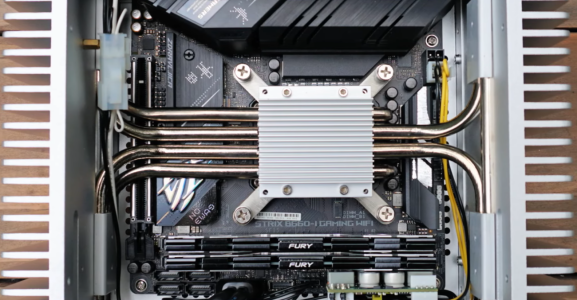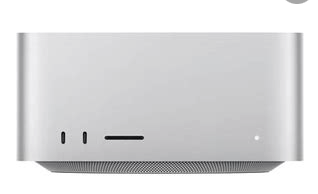I just found out that there are heatsink cases that use heat pipe system to transfer heat from CPU to the case's heatsink walls.

Midrange cases are able to handle 65W-80W CPUs, but there are also some high-end cases that can handle 100W+ CPUs. Sadly, prices are also very "high end".
* https://streacom.com/products/?_product_category=case-fanless
* https://www.turemetal.com/product_en.html
On newer CPUs power limits can be customized. A 250+ watts CPU can be set to run at much lower power, at a cost of peak performance. But, the power to performance scaling is not linear. We are often able to reduce power with a minimal performance loss.
Still, reducing a 250W CPU to 100W or 65W will have noticeable performance impact.
However, AMD CPUs with 3D cache have very low power consumption. A 16 core Ryzen 7950X3D is rated at only 120W TDP while performing close to Intel's i9-13900k:


 www.techpowerup.com
www.techpowerup.com
Limiting this CPU to 100W probably has a very minimal performance impact. So, a passively cooled workstation with 16 core CPU running likely at 95+% performance seems to be possible.
These kind of cases are not a new thing (just new to me). I thought some of you guys might also find it interesting.

Midrange cases are able to handle 65W-80W CPUs, but there are also some high-end cases that can handle 100W+ CPUs. Sadly, prices are also very "high end".
* https://streacom.com/products/?_product_category=case-fanless
* https://www.turemetal.com/product_en.html
On newer CPUs power limits can be customized. A 250+ watts CPU can be set to run at much lower power, at a cost of peak performance. But, the power to performance scaling is not linear. We are often able to reduce power with a minimal performance loss.
Still, reducing a 250W CPU to 100W or 65W will have noticeable performance impact.
However, AMD CPUs with 3D cache have very low power consumption. A 16 core Ryzen 7950X3D is rated at only 120W TDP while performing close to Intel's i9-13900k:


AMD Ryzen 9 7950X3D Review - Best of Both Worlds
The Ryzen 9 7950X3D is the spearhead of the AMD Zen 4 X3D lineup. In our performance review we test AMD's new 16-core flagship with dozens of applications and 14 games at up to 4K, to see whether AMD can take the performance crown from Intel, how power consumption is affected, and what can be...
Limiting this CPU to 100W probably has a very minimal performance impact. So, a passively cooled workstation with 16 core CPU running likely at 95+% performance seems to be possible.
These kind of cases are not a new thing (just new to me). I thought some of you guys might also find it interesting.





